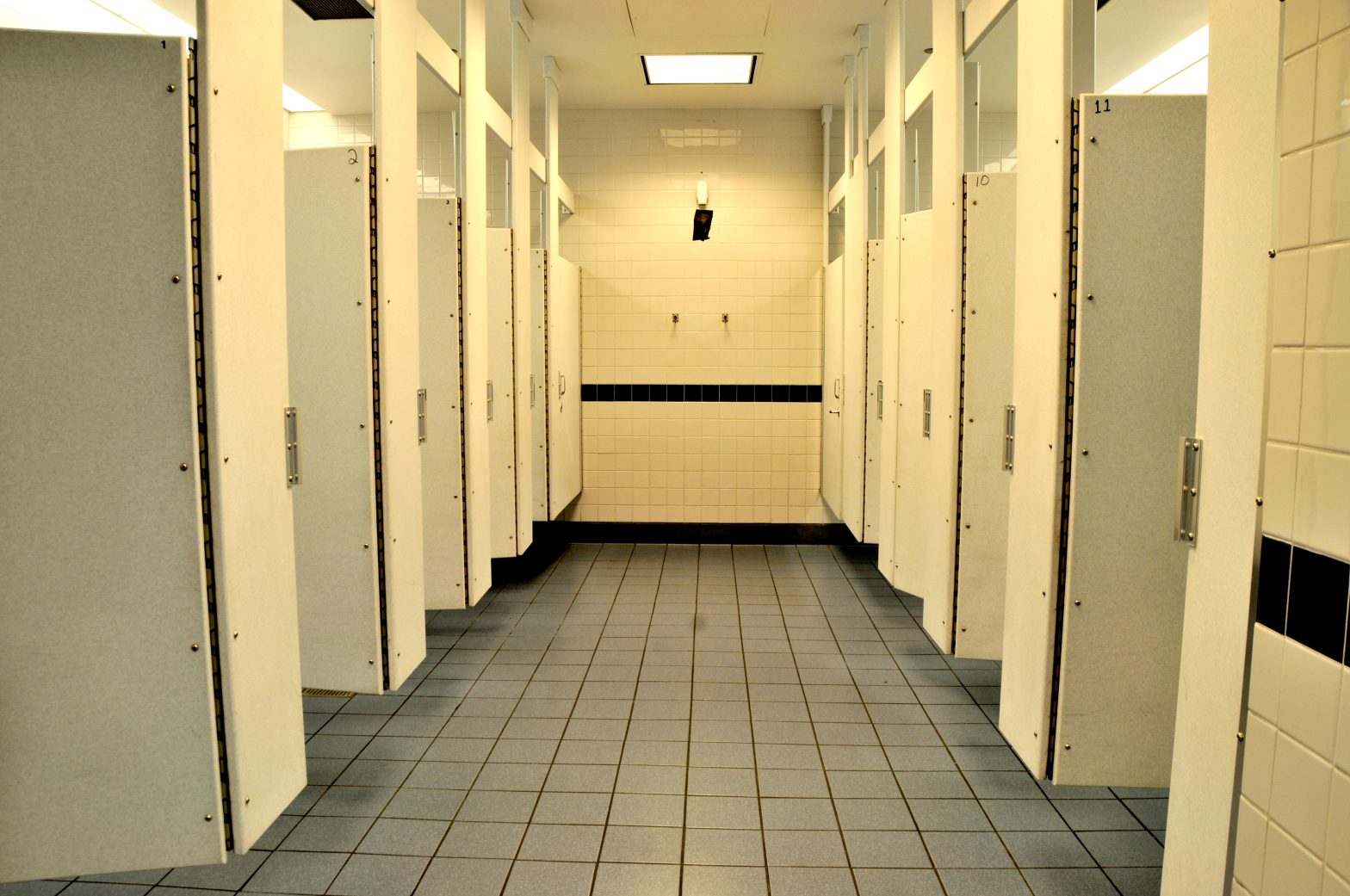Maintaining public washrooms in shopping centers requires consistent planning, particularly when balancing aesthetics, sanitation, and code compliance. Professional shopping mall plumbing services offer solutions for gradual wear, drain issues, and mechanical system maintenance that commercial spaces demand.
With high footfalls per day, a mall’s plumbing infrastructure must perform under pressure without compromising performance or safety.
Common Signs of Overuse in Public Restrooms
Restrooms in retail complexes undergo significant stress due to constant foot traffic. Continuous flushing, hand washing, and general usage expose plumbing components to rapid wear and tear. Faucet handles, flush levers, and stall plumbing fixtures begin to degrade over time, and finishes deteriorate under prolonged exposure to moisture.
Discoloration on the ceiling or walls near restrooms can signal pipe leaks behind the structure. Urinal and toilet stalls with slow flush or repeated clogs are common indicators of declining function. Shopping mall plumbing services are required when these signs escalate or interfere with the usability of restrooms.
Routine inspections must focus on visible rust, cracked porcelain, and inconsistent water pressure. While individual leaks or problems may seem minor, they often reveal larger systemic issues within the plumbing network. This is a situation quite similar to hotel plumbing systems, where frequent use demands routine checks—even before major issues surface.
Drainage Problems and Floor Flooding Risks
Clogged or slow drains in public restrooms not only present sanitation risks but also lead to severe property damage. In commercial complexes, the drainage system handles more than washroom traffic. Overflow from restrooms can reach nearby commercial units or food courts if not contained. Early warning signs include water pooling around floor drains, slow drainage in sinks, and gurgling noises from floor traps.
Unattended drain blockages may result in backflow or flooding, especially when janitorial staff use heavy water volumes during cleaning hours. Professional shopping mall plumbing services address these issues through hydrojetting, regular pipe descaling, and slope realignment to encourage optimal water flow. These methods are more sustainable than quick fixes that fail under repeated commercial use.
Drain issues also affect commercial kitchen plumbing setups in food courts and dining zones within malls. Grease, food waste, and cleaning chemicals often pass through shared drain networks, increasing the likelihood of complex blockages that compromise adjacent restrooms.
Managing Sensor-Activated Plumbing Fixtures
Modern malls install sensor faucets, automatic soap dispensers, and touch-free flush systems to reduce surface contact and improve hygiene. However, these smart systems require integration with both electrical and plumbing systems. Malfunctions in power supply, sensor calibration, or valve controls can cause water waste or system failure.
Most sensor systems are hardwired into utility panels. Misalignment in wiring or pressure regulators can lead to dripping faucets or non-responsive toilets. Maintenance teams delivering shopping mall plumbing services understand both the electronic and hydraulic aspects of these systems to keep them operational. Cleaning agents and soap residue can fog sensors, leading to misfiring or total shutdown of automatic functions.
Preventative steps, such as scheduled sensor recalibration, battery checks (for non-hardwired units), and solenoid valve replacements, are necessary to avoid disruptions. These techniques mirror approaches used in hotel plumbing services, where discreet functionality must remain uninterrupted throughout the day.
Plumbing Compliance in Commercial Washroom Environments
Public washrooms must meet regional building code requirements, particularly in terms of accessibility, water-saving fixtures, and backflow prevention. In Toronto and across the GTA, regulations require pressure-balanced valves, anti-scald devices, and backwater valves, mainly when commercial kitchens are located in the same vicinity.
Retail properties need to align with plumbing codes while accommodating tenant-specific modifications. For instance, stalls shared by multiple retail units must maintain separate water shutoffs and access points. Fire-rated pipe materials and flood-protection mechanisms are also mandatory in many retail complexes, particularly where plumbing crosses into commercial kitchens or food service areas.
Documentation of plumbing inspections, maintenance logs, and scheduled upgrades contribute to ongoing compliance. Failure to do so may result in fines, occupancy delays, or the closure of public restrooms due to non-compliance. Shopping mall plumbing services assist in keeping these processes aligned with evolving municipal standards.
When to Hire Shopping Mall Plumbing Services
Not all plumbing issues show early warning signs. Sudden leaks, overflowing toilets, or clogged drains require immediate attention. However, scheduled maintenance remains the better approach. Malls should hire dedicated shopping mall plumbing services at the start of every season, particularly before winter, as oftentimes freezing temperatures cause damage to exposed pipes.
Key times to hire include:
- Before the holiday season, when traffic increases.
- After renovations or tenant buildouts near shared plumbing.
- Following health or safety audits involving plumbing fixtures.
- When upgrading sensor systems or transitioning to water-saving models.
Unlike residential plumbing, commercial plumbing requires specialized tools, larger-scale diagnostics, and a thorough understanding of building-wide infrastructure. Commercial kitchen plumbing challenges, particularly those involving grease traps or heavy sediment, need technicians familiar with restaurant code compliance as well.
In Conclusion
Proper maintenance of shopping mall restrooms has a substantial impact on the visitor experience, tenant satisfaction, and long-term property value. Drain problems, worn fixtures, sensor faults, and regulatory gaps all contribute to preventable repair costs and potential liability. Working with professionals who specialize in shopping mall plumbing services provides the consistency and expertise needed to maintain public facilities in line with commercial expectations.
For experienced, timely, and qualified shopping mall, hotel, and office plumbing services, contact J.A. Plumbing Inc. today.










